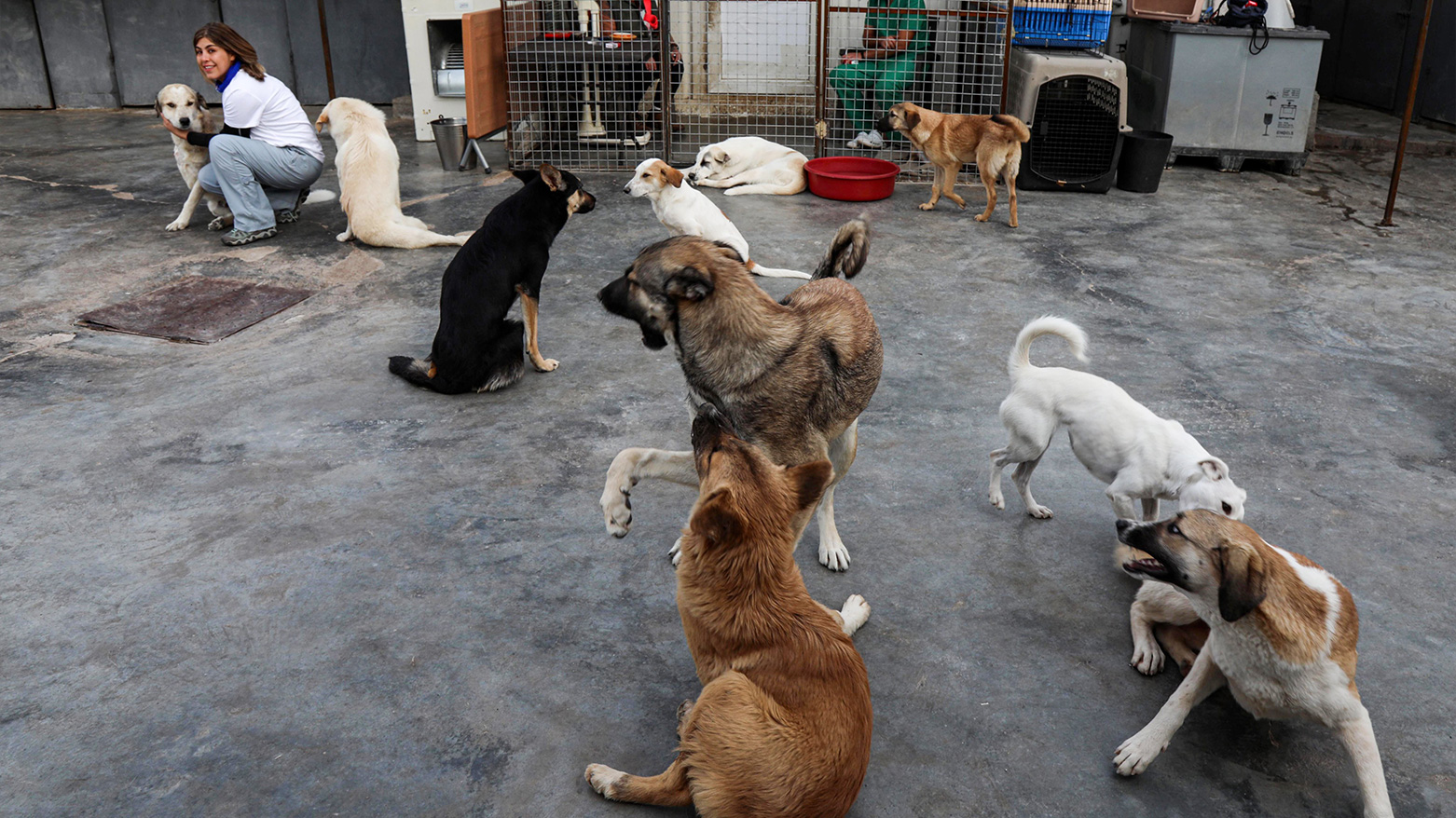Erbil's Humane Stray Dog Campaign Shows Progress Amid Calls for Wider Reach
Erbil's large-scale campaign to manage stray dogs has collected 18,000 animals, with 9,000 neutered and released. While the effort has been praised for reducing dogs in the city center, a recent spike of 94 bite cases on the outskirts highlights the need for the program's expansion.

ERBIL (Kurdistan24) – In a sustained and large-scale effort to address a long-standing urban challenge with a humane and strategic approach, municipal teams in Erbil are continuing their extensive campaign to manage the city's stray dog population, a project that has already seen 18,000 dogs collected and over 9,000 neutered and vaccinated before being safely released.
While the intensive campaign has made a clear and positive impact in the city center, a recent spike in dog bite incidents on the city's outskirts has highlighted both the success of the initiative and the urgent need for its expansion to protect all of the capital's residents.
The complexity of the challenge and the tangible results of the government's efforts were brought into sharp focus by recent statistics from Rozhawa (West) Hospital in Erbil. The hospital recorded 94 cases of dog bites in the province last month alone, with the majority of these incidents occurring on the city's periphery.
This is happening at the same time as a major, ongoing campaign to collect stray dogs continues to operate daily within the city's core. Every day, two dedicated teams collect more than 50 dogs from central Erbil and transport them to a specialized stray dog shelter.
While this intensive effort has been highly effective in the areas it covers, its reach is less comprehensive on the outskirts, a reality reflected in the dog bite statistics. However, officials believe that without the collection and neutering program, the number of incidents would have been several times higher, a clear sign that the strategy is working where it is being implemented.
Residents in areas that have benefited from the campaign have been quick to praise its impact. Aras Samad, a resident of the Bnaslawa neighborhood, described a dramatic improvement in his community's safety and quality of life.
"Until about a month ago, Bnaslawa was in a very bad situation due to aggressive stray dogs," he told Kurdistan24. "But now, after the Erbil provincial campaign, stray dogs are rarely seen, so we commend their efforts."
This sentiment was shared by Dawlat Taha, another resident of the same neighborhood, who confirmed, "There are far fewer stray dogs now compared to before." Her gratitude, however, was coupled with a plea for the campaign to be completed. "We call on the regional government and the mayor to remove the remaining dogs to protect our children, who cannot safely go outside," she urged.
These calls for expansion are being heard, as authorities and civil society organizations work in concert to develop a comprehensive, long-term solution.
A recent conference brought together a wide range of stakeholders, including environmental organizations, the municipality, veterinary services, environmental police, and the Environmental Peshmerga, to brainstorm strategies that go beyond the current shelter and collection model.
The goal is to control the stray dog population through a variety of methods, while also promoting a deeper public understanding of animal behavior. Environmental organizations at the conference emphasized that stray dogs rarely harm people without provocation and that human behavior is often the source of the problem, a message aimed at fostering a culture of coexistence and responsible interaction.
The cornerstone of Erbil's current strategy is the trap-neuter-return (TNR) model, a humane and scientifically supported approach to managing stray animal populations. Since the dedicated shelter was established, a total of 18,000 stray dogs have been collected.
Of these, as confirmed in the latest report, 9,000 have undergone surgery to be neutered or spayed, have been vaccinated against diseases like rabies, and have then been released back into their environment, rendering them unable to reproduce and less likely to exhibit aggressive behaviors.
This approach stands in stark contrast to the culling practices that have been reported in other provinces, which have drawn sharp protests from animal welfare advocates.
Erbil’s model has been held up as a progressive alternative, with Nabaz Abdulhamid, the mayor of Erbil's central district, previously stating that while Iraqi law still permits the killing of dogs, "in the Kurdistan Region, we do not follow this practice; instead, we have built shelters to keep the animals away from humans."
The campaign has seen a steady intensification of its efforts over the past two years. In April 2025, officials confirmed that collection rates had been significantly increased to at least 50 dogs per day, a pace that has been maintained.
The program's capacity has also been bolstered by logistical improvements, such as the addition of new vehicles that tripled the daily collection average at one point. This sustained operation has had a measurable impact on public safety, with officials reporting in January 2025 that the number of dog bite incidents was expected to drop by nearly half from the previous year.
The future of the initiative includes further expansion and investment. The Erbil provincial budget has allocated 455 million Iraqi dinars for the construction of a new, modern shelter facility that will be built on 20 acres of land and staffed by multiple veterinary teams.
This long-term commitment reflects a clear and evolving strategy by the authorities in Erbil to manage a complex urban issue in a manner that prioritizes both public health and animal welfare, creating a safer and more compassionate city for all its inhabitants, both human and animal.